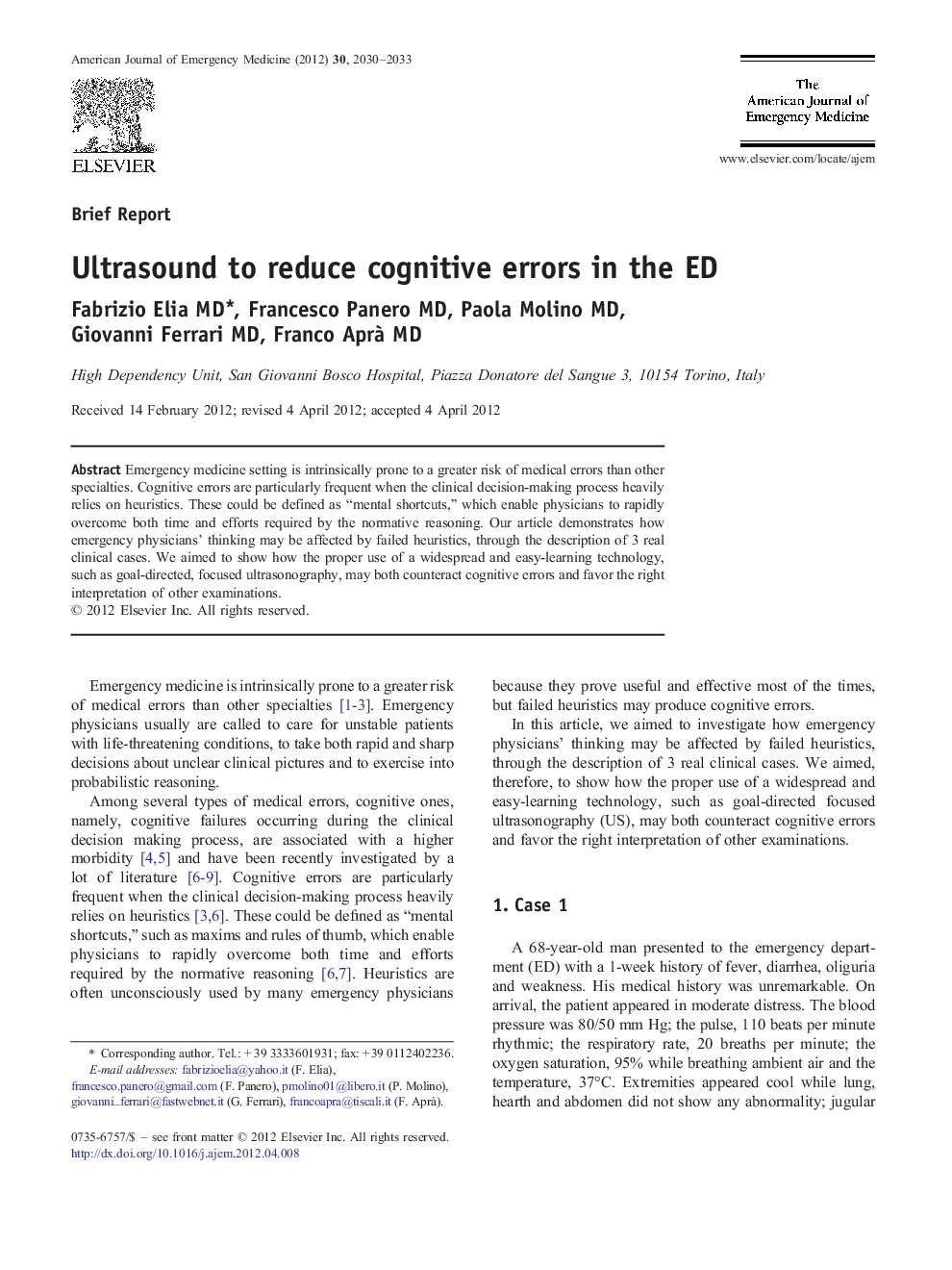| Article ID | Journal | Published Year | Pages | File Type |
|---|---|---|---|---|
| 3224932 | The American Journal of Emergency Medicine | 2012 | 4 Pages |
Abstract
Emergency medicine setting is intrinsically prone to a greater risk of medical errors than other specialties. Cognitive errors are particularly frequent when the clinical decision-making process heavily relies on heuristics. These could be defined as “mental shortcuts,” which enable physicians to rapidly overcome both time and efforts required by the normative reasoning. Our article demonstrates how emergency physicians' thinking may be affected by failed heuristics, through the description of 3 real clinical cases. We aimed to show how the proper use of a widespread and easy-learning technology, such as goal-directed, focused ultrasonography, may both counteract cognitive errors and favor the right interpretation of other examinations.
Related Topics
Health Sciences
Medicine and Dentistry
Emergency Medicine
Authors
Fabrizio Elia, Francesco Panero, Paola Molino, Giovanni Ferrari, Franco Aprà,
